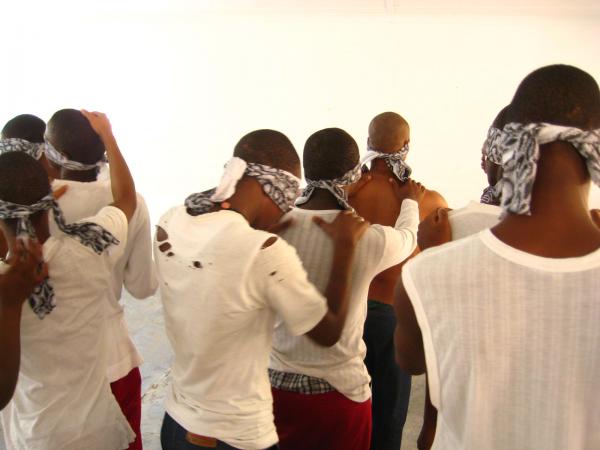Organisation helps young prisoners fix their lives

The South African Government hasn’t created effective reintegration programs for former prisoners. Young In Prison (YIP) is an organization that addresses the lack of programs for young inmates.
Motebang Masitha is an ex-inmate who grew up in Cape Town townships and lives in Capricorn. He was imprisoned at 18 and spent seven years inside. He was sentenced for robbery, aggravated house breaking, and theft.
“The environment of the communities I have lived in push young people towards criminal activity. You don‘t get to chose your character,” he says.
According to the most recent statistics from the Department of Correctional Services, nearly 55,000 youths between the ages of 14 and 25 are imprisoned in South Africa. Of that total, about 32,000 are sentenced. And from those sentenced, just over 9,000 are for economic related crimes and almost 16,000 for aggressive or violent crimes.
“There are no effective rehabilitation programs or initiatives for ex-inmates,” says Masitha.
The only help Masitha found during his time in prison was from YIP. YIP is an organization that addresses the lack of rehabilitation programs that Masitha is referring to. He was introduced to YIP when he was 20. Now he works for them, while he is also continuing his college education. He says YIP focuses on the “causes of crime, not just the symptoms.”
The YIP Story
YIP is an organisation based in Salt River, Cape Town that works with imprisoned youth. They use education and creative arts to help prisoners successfully move back into their communities. Other organisations that do similar work to YIP are Beth Uriel House and the National lnstitute for Crime Prevention and Reintegration of Offenders. YIP works with young prisoners on the understanding that many youths are the victims of broken social environments.
GroundUp visited Victor Verster Drakenstein maximum-security prison. We followed YIP Life Skills Facilitator Thlabanelo Diholo and Advocacy and Communications Manager Kholofelo Mashego, while they were leading a workshop with 25 young men. It was the third session with the group.
The focus of the session was emotions and their effects on behavior. Diholo coordinated various activities that got the participants to consider the importance of dealing with internal feelings that lead to bad behavior.
This approach reflects YIP’s motto of “Inside Out.” During a discussion an inmate recognised emotion as the “trigger that shoots the gun. Emotion causes actions. Sometimes actions with a gun too.”
Diholo told his audience, “Emotions have led you to behave in ways that have gotten you here. If we learn to deal with them, we can take responsibility for our lives.”
Diholo explains that the group is part of a 15-week program. “There are different programs that focus on life skills, stress and anger management and creative arts.” He explains that they address specific topics like gang violence. “After 15 weeks we hold a presentation where we invite the families of the participants to see the work that has been done.”
“We also put together a magazine that showcases the work of the participants, and issue a certificate,” says Mashego. The certificate can be used for inmates’ parole applications.
Sbu (pseudonym) is an ex-inmate and participant who works with YIP. He said, “When you leave prison, you are blind. There is no help from government. The YIP program offered me a way of helping myself.” Sbu is working with YIP to solve a problem he was once a part of. “Young people need to stand up for themselves, and take responsibility for their actions. But programs like these help them along.”
Next: Milk
Previous: From Somali “Blast Furnace” to South African “Frying Pan”

This article is licensed under a Creative Commons Attribution-NoDerivatives 4.0 International License.


